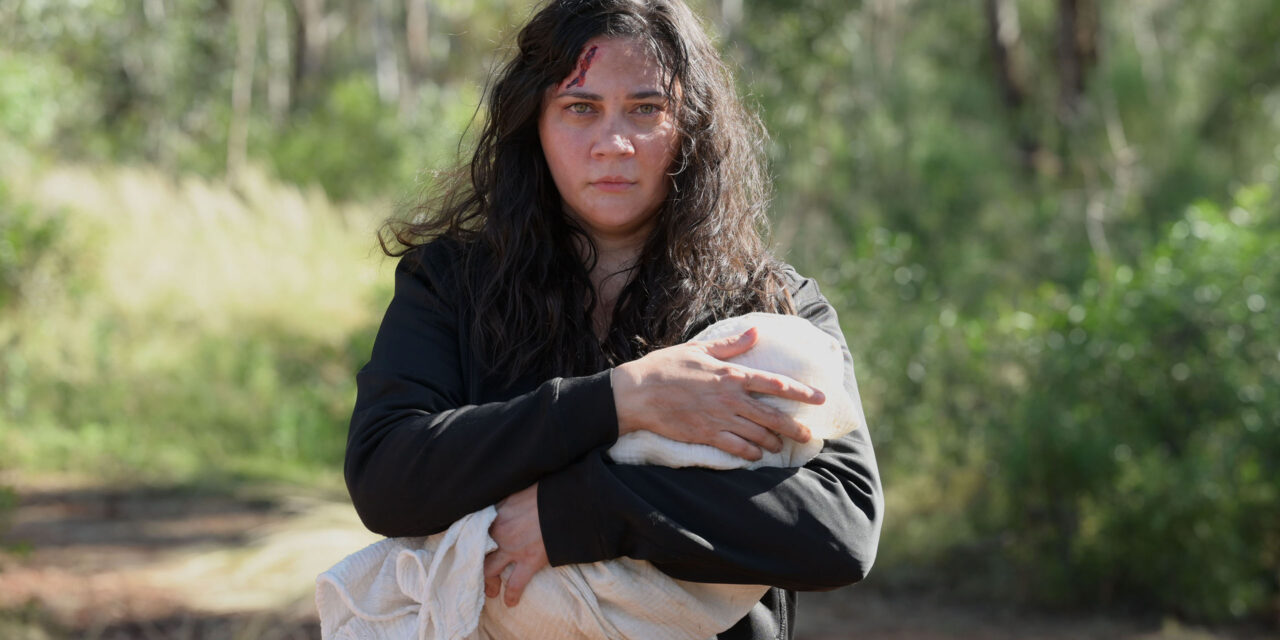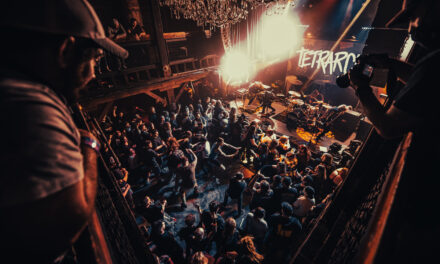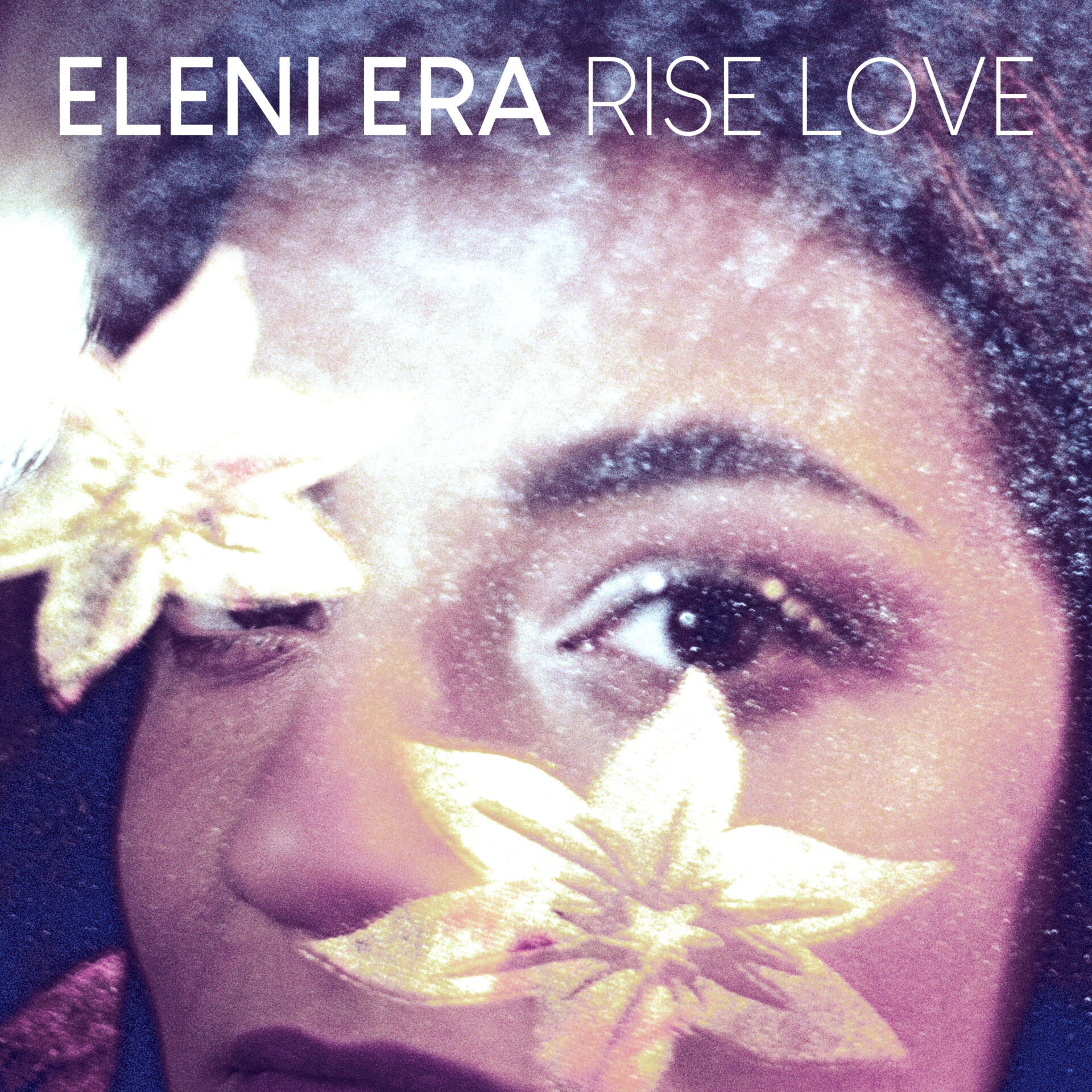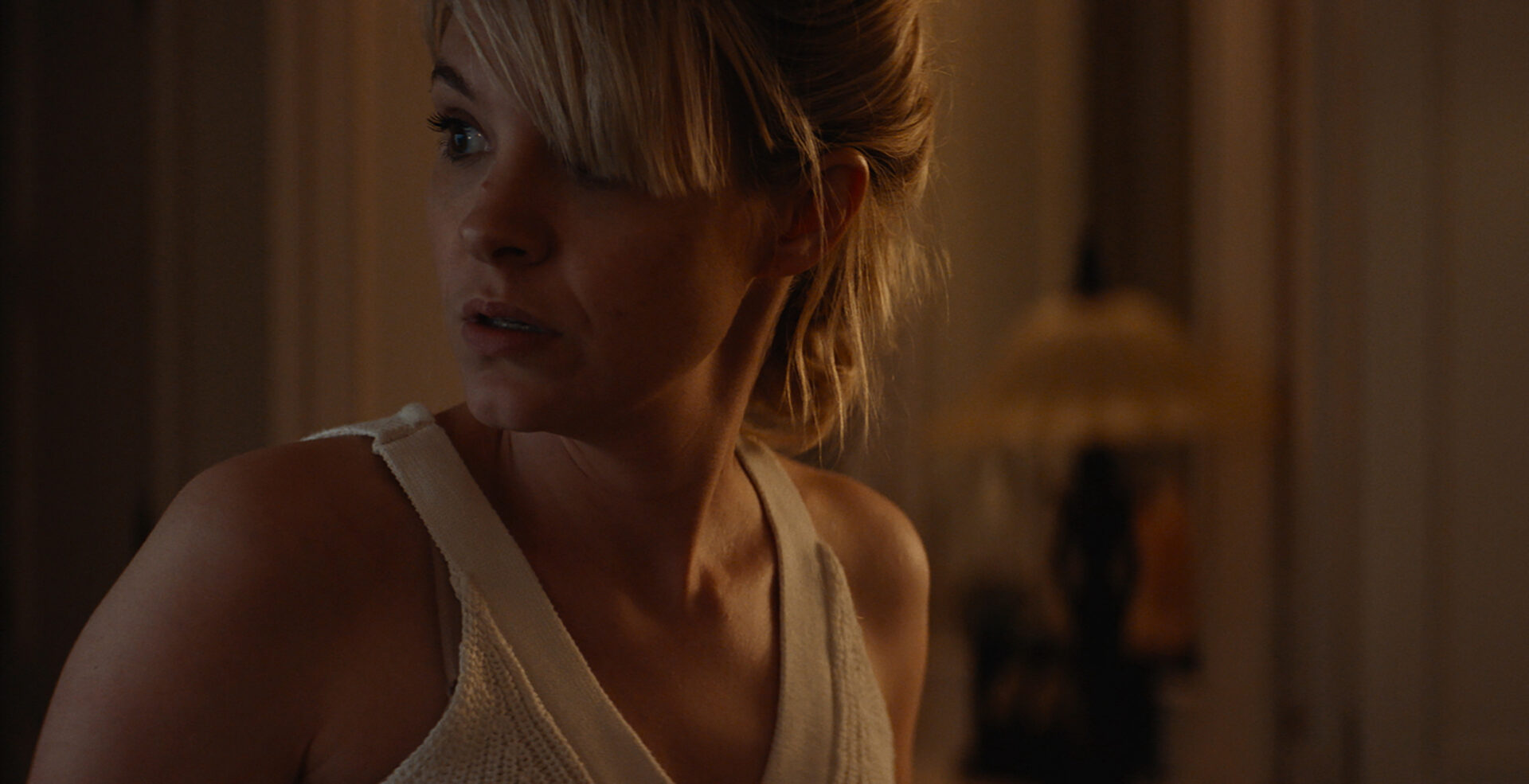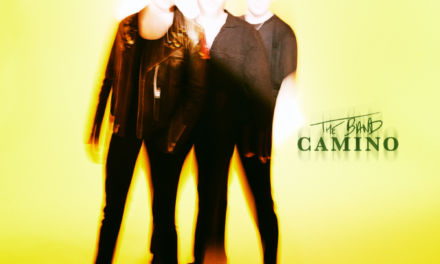The one thing you will immediately notice in writer-director Jon Bell’s The Moogai is the strong character design of the monster itself. It’s a sometimes horrifying practical physical embodiment tied to terrible atrocities committed against the “Stolen Generations” between the years of 1910 and 1970. That was when mixed-race children (who were deemed “half-caste) of Australian Aboriginal descent were forcibly taken from their families due to Australian policies on the books. To this day, the exact figures of how many children are still unknown, but estimates are said that one in three indigenous children was purposely displaced. The real story is terrifying, and the horror genre is the right place to convey that in a more universal scope. Bell’s 2021 award-winning short of the same name uses the 14-minute runtime to convey the fears of a couple trying to enjoy their newborn. But something supernatural in the darkness is attempting to take it away.
As a full-length feature, The Moogai is around 86 minutes long, enough time for Bell to touch on various issues inside the central compass. It’s not only the history of the children and the fears within the modern world, but there are important issues such as postpartum depression, racial dynamics within society, estrangement from parents, and reclaiming the culture that you come from. The problem arises from not having the time to flesh out why all those issues are just as important as the touch of history. Sometimes, it feels as though you are flying by these critical themes to get to the more standard horror-like parts of the film. The beginning of The Moogai sets the stage for its overarching theme dealing with imprinted generational trauma. Two indigenous sisters are playing a game until they are suddenly urged to run away from two white men who suddenly arrive. One sister hides in a cave but then hears an unsettling growl. What is assumed to be The Moogai violently takes her away, leaving the other sister to watch in terror.
From there, we are transported to the present day, where Sarah (Shari Sebbens, reprising her role from the short film) has plenty to celebrate. She just closed a massive deal at the city law firm where she works and immediately shuts down a condescending co-worker who claims her star is on the rise for other reasons. She’s also expecting her second child with her husband, Fergus (Meyne Wyatt), and everything feels like it’s generally going the best way it could be. However, there is something in her past that troubles her — mainly stemming from the lack of relationship with her birth mother, Ruth (Tessa Rose). While Fergus and Sarah’s daughter Chloe (Jahdeana Mary) have warmed up to Ruth in her efforts to be present, Sarah wants no part. It’s not only hinted that there’s a rift because of the circumstances of their separation, but also an element of class separation lingers. Sarah views herself as distant from her mother’s background but still in tune with it.
Unexpectantly, Sarah goes into emergency labor and almost dies from it. Thankfully, she and the baby survive; however, something from the other side returns with her. At night, she sees an indigenous girl with white eyes saying that something is coming to get her children. She starts to see hallucinations of snakes around the house, and everything happening to her causes her to go into an anxious state of paranoia. Fergus is alarmed, and Ruth tries to help with a form of protection passed down from her relatives. Despite that, The Moogai draws closer, and in that aspect, the film makes good on the building tension of this presence stalking this family. It does it in a way you would be familiar with — quick-cut jump scares, view of ghosts in a dark hallway, and sudden dramatic visions. The Moogai supplants itself through the lens of Sarah and everything she’s experiencing.
Things take a turn for the conventional when there’s disbelief among family members about what Sarah is seeing occur. There are a few moments outside that lens where The Moogai could have built upon the central theme of the “stolen children” and how those fears are still tangible today, but they pull back way too fast. There’s a particular moment with Sarah’s work colleague/friend Becky (Bella Heathcote) where she doesn’t stick up for her in front of a white teacher who blames Sarah for something in front of the police. This situation could have been bridged to much of the class views hinted at earlier in the film with Sarah and Ruth. Instead, it’s left as a missed opportunity. Rather than explore why there’s so much tension with Sarah and where she came from, The Moogai elects to move past to a resolution where she looks to reclaim it all as a last resort. It’s a shame because there’s a compelling premise built into what this story is saying — but it does not provide the runaway to voice it all.
Photo Credit: Sundance

